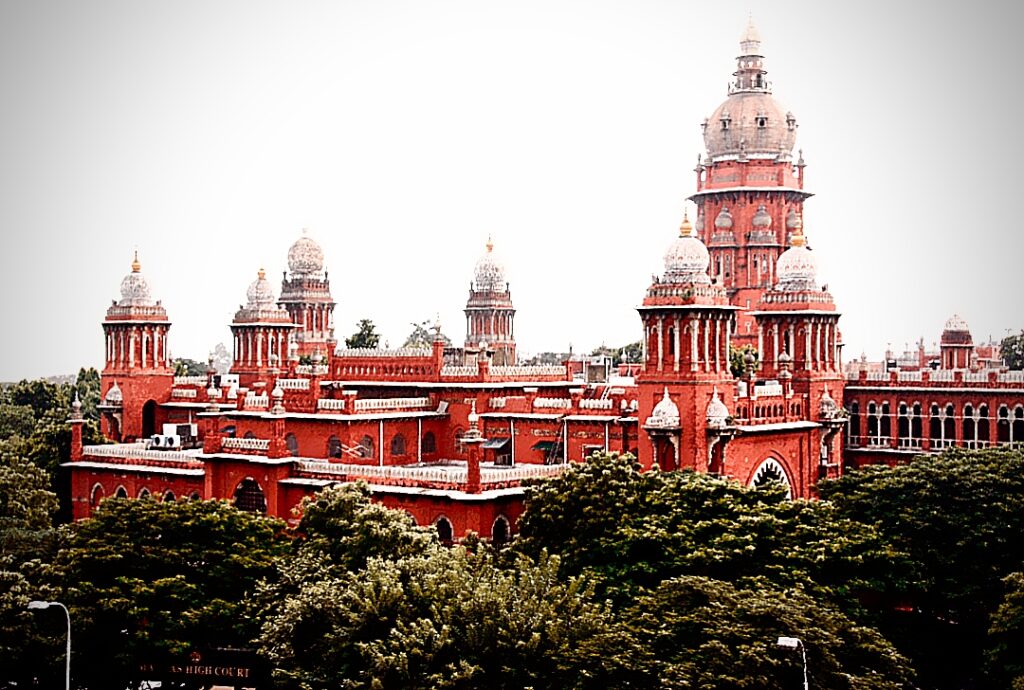This ruling of Madras High Court underscores the importance of natural justice in GST assessments and provides taxpayers an opportunity for fair representation.
In a significant ruling, the Madras High Court has granted a final hearing in the case of Nilgiri Dairy Farm P. Limited Vs Assessment Commissioner (ST) (WP No. 1728 of 2025), subject to the payment of 10% of the disputed tax. The petitioner challenged the impugned order dated 24.08.2024 on the grounds of violation of the principles of natural justice.
Case Background
The petitioner, a registered dealer under the Goods and Services Tax (GST) Act, had filed returns and paid the appropriate taxes for the relevant period. However, an audit was conducted at the petitioner’s business premises under the authorization of the Joint Commissioner as per Section 65 of the GST Act. During this audit, the following discrepancies were identified:
- Difference in Input Tax Credit (ITC) claims between Form GSTR-3B and auto-populated GSTR-2A.
- Mismatch between GSTR-1 and GSTR-3B.
- Non-payment of tax under the Reverse Charge Mechanism (RCM) as per Section 9(3) & (4) of the TNGST Act, 2017.
- Unreconciled payments reported in Form GSTR-9C.
- Credit notes issued were treated as taxable supplies.
- Other income was considered as consideration received.
- Reversal of input tax credit on purchase returns.
- Ineligible input tax credit under Section 17(5) of the TNGST Act, 2017.
Legal Proceedings
Following the audit findings, a notice in DRC-01A was issued, and the petitioner responded on 07.03.2024. Subsequently, show cause notices in DRC-01 were issued on 29.05.2024 and 30.05.2024. The petitioner was granted personal hearings on 08.08.2024 and 10.08.2024.
Upon reviewing the matter, the impugned order was issued, dismissing discrepancies related to points 1, 3, 4, 5, and 8. However, the following discrepancies were upheld:
- Mismatch between GSTR-1 and GSTR-3B.
- Other income treated as consideration received.
- Reversal of input tax credit on purchase returns.
Court’s Decision
The petitioner relied on the judgment of this court in Sree Manoj International Vs. Deputy State Tax Officer (W.P.No.10977 of 2024, dated 25.04.2024), where the matter was remanded for reconsideration upon payment of 10% of the disputed taxes. The petitioner agreed to comply with this condition, and the respondent had no serious objections.
Read the Case: Sree Manoj International Vs. Deputy State Tax Officer (W.P.No.10977 of 2024, dated 25.04.2024)
By mutual consent, the High Court disposed of the writ petition with the following directives:
- Impugned Order Set Aside: The impugned order and its consequential demand order dated 24.08.2024 are annulled.
- Payment of 10% Disputed Tax: The petitioner must deposit 10% of the disputed taxes within four weeks from the date of receiving this order.
- Adjustment of Prepaid Amounts: Any pre-deposited or recovered amounts from the disputed taxes will be adjusted against the 10% payment. The assessing authority must notify the balance amount within one week, and the petitioner must clear the balance within three weeks.
- Verification and Compliance: The entire process of verification, intimation, and payment must be completed within four weeks.
- Consequences of Non-Compliance: If the petitioner fails to deposit the 10% disputed tax within the stipulated timeframe, the impugned order will be reinstated.
- Lifting of Recovery Proceedings: If any bank account attachments or garnishee proceedings are in place, they shall be withdrawn upon compliance with the payment condition.
- Fresh Adjudication Opportunity: Upon successful payment, the impugned order will serve as a show cause notice. The petitioner must submit objections along with supporting documents within four weeks. The respondent shall reconsider the objections and pass a fresh order after granting a fair hearing.
- Failure to Comply: If the petitioner does not meet the payment or objection submission deadline, the original impugned order will stand restored.
Also Read: New Income Tax Bill 2025- Key Changes
Conclusion
This ruling of Madras High Court underscores the importance of natural justice in GST assessments and provides taxpayers an opportunity for fair representation. Businesses facing similar tax disputes can seek relief by making partial payments and presenting their case before the adjudicating authority.
Case Details
- Case Title: Nilgiri Dairy Farm P. Limited Vs Assessment Commissioner (ST)
- Case Number: WP No. 1728 of 2025
- Date of Judgment: 22.01.2025
- Court: Madras High Court
For businesses navigating GST disputes, this ruling sets a precedent for procedural fairness and ensures that taxpayers are granted a fair chance to present their case before an adverse order is finalized.
READ MORE
New Income Tax Bill 2025: Key Details on Features and Changes in Provisions Impacting the Taxpayers
Section 269SS Not Applicable to Brokers Acting as Agents or Facilitators: ITAT Chennai

